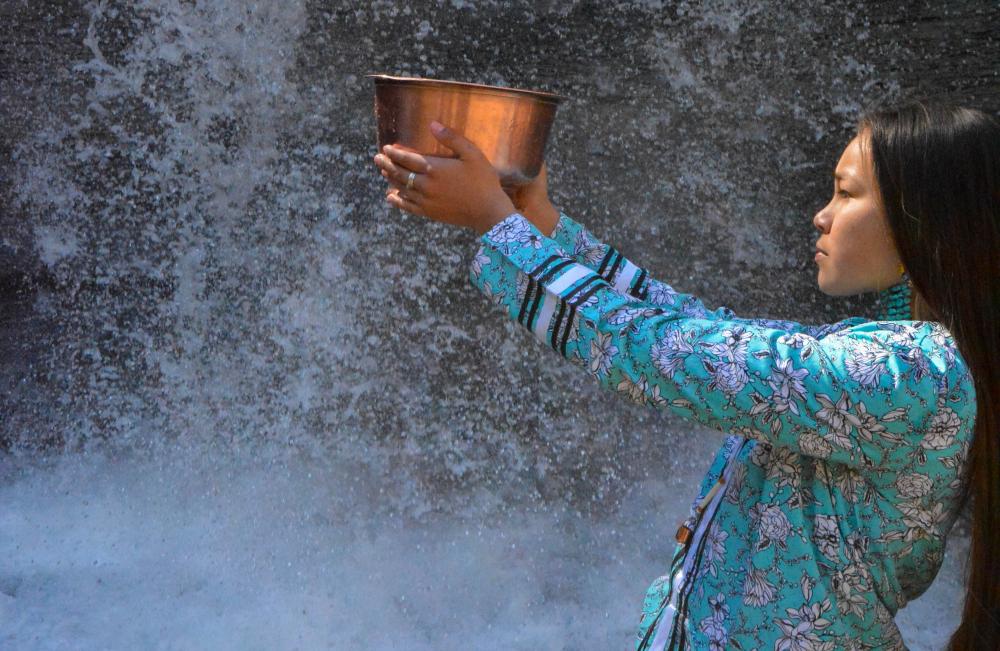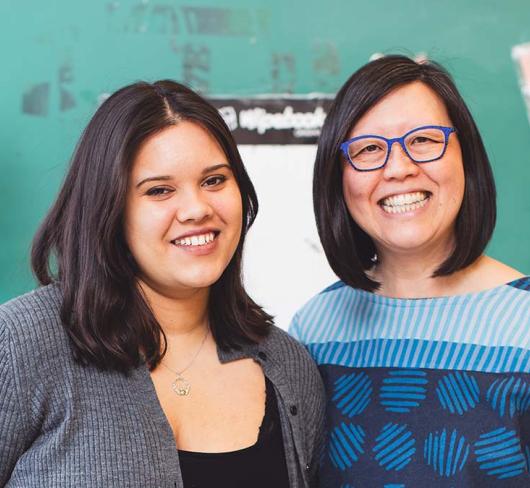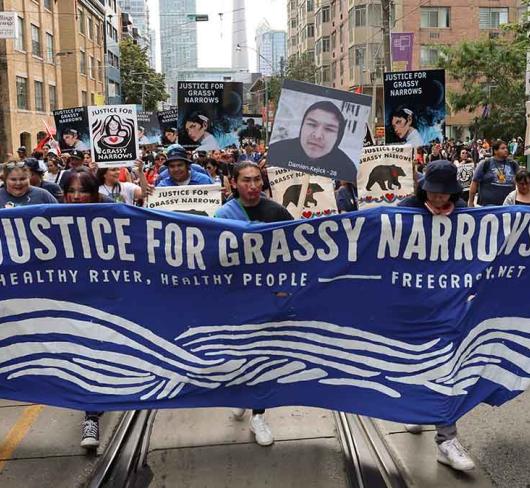
The Powerful Impact of Activism: Autumn Peltier on Walking for Water and Standing Up to Make a Difference for the Environment
Izida: Hi Autumn. So nice to meet you over Skype. Can you start off by telling me a little bit about yourself and your community.
Autumn: My name is Autumn Peltier and I am 13 years old. I am from Wikwemikong Indian Territory in Ontario, Canada. My aunt and my mom have been teaching me about the importance of clean drinking water and how to protect the environment since I was a little girl. It’s through this learning that I realized what is happening in our world and what humans are doing to the planet and mother earth. I wondered what I was going to do about it. I basically stepped up and started advocating for clean drinking water. Since my aunt Josephine Mandamen is a long-time, committed water advocate, she has inspired me to be doing this work because once she can’t, because of her age, who is going to continue?
Izida: Can you tell me about the Water Walks your Aunt Josephine started in Ontario? What are they and who participates in them?
Autumn: My Aunt Josephine started doing Water Walks about 16 years ago. When you are walking for the water you walk far distances, like around the lake. When you are walking, you are praying for the water and you raise awareness, advocating for clean drinking water. She is the one who inspired me to do the work that I am doing now. She did her last Water Walk in July. She walked from Duluth, Minnesota to Montagne, Quebec.
Izida: Can you talk about why protecting the water and walking for water are important for everyone?
Autumn: I advocate for water because we all came from water and water is literally the only reason we are here today and living on this earth. Without water, everything would die. Nothing can survive without water. Water is one of the most sacred things, one of the most sacred elements in ceremonies. When a baby is in a mother’s womb for nine months, you are living in water. Our first teaching is water, because we all come from water.
Izida: You have been a powerful advocate for ensuring all communities have safe drinking water. You even called out Prime Minister Trudeau on the issue when you met him. What did you say?
Autumn: There are many First Nations communities that cannot drink their water. Canada is one of the richest countries in the world. Why should our people be living in these conditions? When I had the chance, I told him that I was very unhappy with the choices he has made. He said he understood. Then I started crying. I said what about the pipelines and he said that he would protect the water.
Izida: If other kids want to become water protectors, what kind of actions can they take?
Autumn: When I speak to kids, I always tell them that they could do the work I am doing. Anybody can do this work. I just started public speaking and advocating in my own community. Then, it kind of just progressed from there. I do strongly advocate for kids and youth to be doing the work I am doing. What I tell kids is that everyone must help with the clean water issue, recycling and taking care of the environment. They could even clean up the shorelines or find another activity to do in a group.
Izida: How can teachers raise awareness about protecting water with their students? What are some things teachers can do?
Autumn: I think teachers should educate students on the importance of water. Make a regular time to talk about the environment. Having some time, more than once a year, when teachers talk about the environment or talk about water is very important.
Izida: You started standing up for what you believe in and all these people got on board with you. What would you say to kids today on how they can stand up for what they believe in? What advice do you have for kids who want to be activists?
Autumn: I would just say, for the people who are willing to speak up, speak up for those who cannot and speak up for the water and speak up for the environment. Anybody could do this work and if we all come together, we can hopefully make a big change.
Izida: I understand you have been nominated for an International Children’s Peace Prize and are being awarded a medal of honour for your advocacy by the Canadian Government. That’s incredible recognition for you and for the important work of advocating for water and the environment. I have also heard you have been invited to speak to the United Nations General Assembly in March for World Water Day. Can you tell me what you are you planning to say?
Autumn: I was invited to the United Nations and I am going to be focusing on First Nations’ need for clean drinking water. Why has the government not done anything about it yet? I will be speaking about the need for clean drinking water around the world as well.

